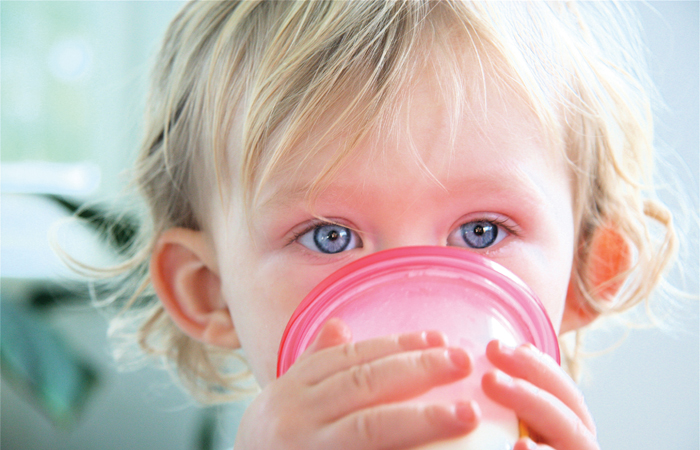12 months plus

2. Growing up milks
In 12 months plus
Bookmark
Record learning outcomes
Even with the most careful planning, some toddler diets may still fail to provide sufficient levels of the key nutrients – which is where growing up milks can help*

Compared to cows’ milk, growing up milks contain:
- Much higher levels of iron and vitamin D. Vitamin D is needed for normal growth and bone development, but infants and young children in the UK are only getting 27 per cent of their daily vitamin D needs, according to the 2011 National Diet and Nutrition Survey
- A significant proportion of key vitamins and minerals, such as vitamins A and C
- Increased essential fatty acids
- Some brands also contain prebiotic oligosaccharides and LCPs.
Cows’ milk can be given in combination with growing up milks. For example, cows’ milk could be used in cooking and growing up milk given as a drink.
Compared to cows’ milk, growing up milks contain: much higher levels of iron and vitamin D
Fussy eaters
Toddlers are notorious for being fussy eaters. Their likes and dislikes can be a barrier to achieving a nutritionally balanced diet. However, these phases are quite normal and usually only last a short time. Parents should therefore consider their child’s dietary intake over the course of a week, rather than daily, to get a more accurate picture.
See the Weaning section for more tips and advice. Any concerned parents should be referred to a pharmacist, health visitor or GP, if deemed necessary.
 When to refer
When to refer
Refer parents with the following concerns to the pharmacist for further advice:
- Toddlers not eating a healthy, balanced diet
- Children drinking too much or too little milk
- Feeding problems (e.g. child is not gaining weight, has reflux or unusual symptoms)
- Children with signs of allergies to certain foods.
*Using growing up milk is an option for parents – it is not essential.
